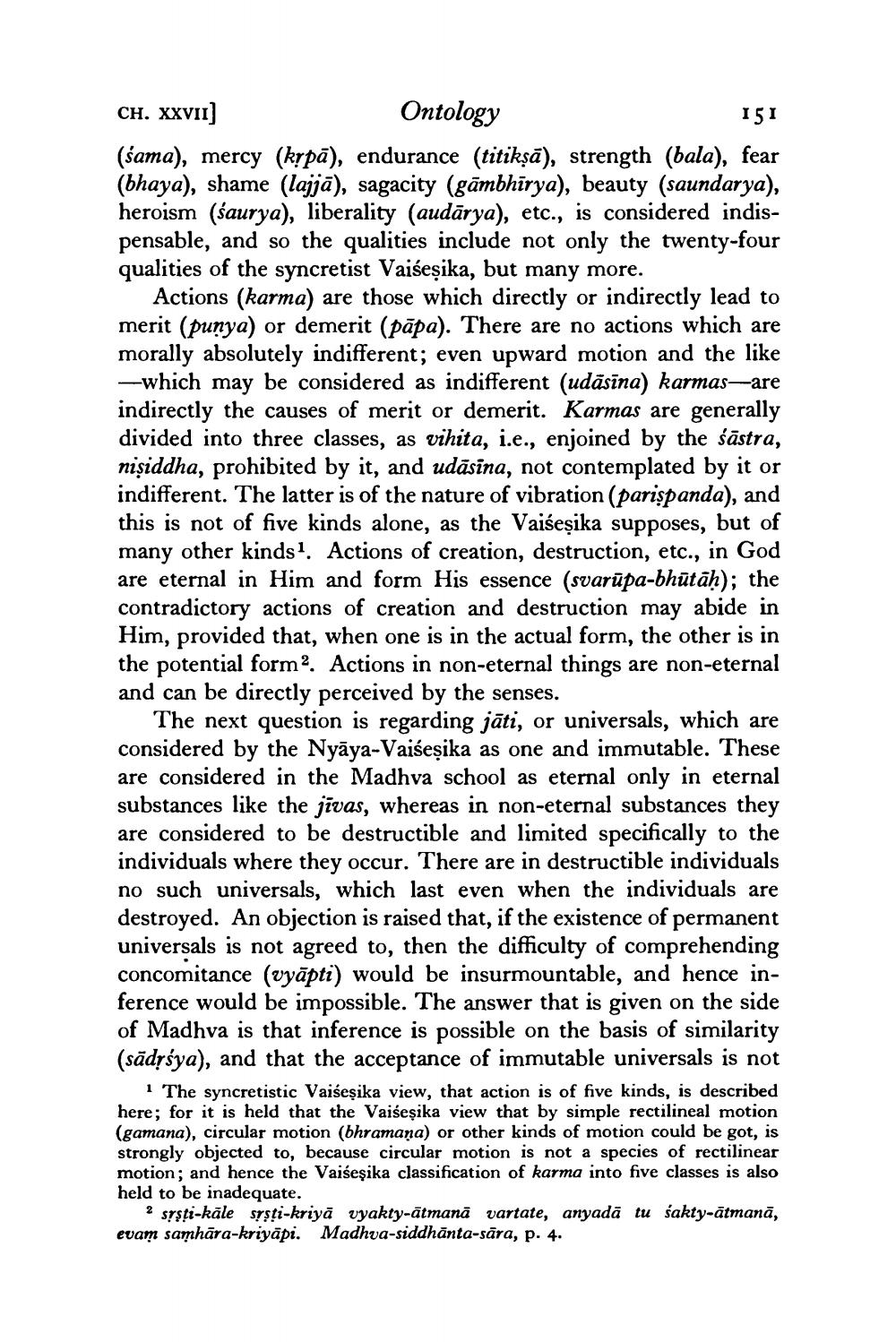________________
CH. XXVII] Ontology
151 (sama), mercy (krpā), endurance (titikṣā), strength (bala), fear (bhaya), shame (lajjā), sagacity (gāmbhīrya), beauty (saundarya), heroism (saurya), liberality (audārya), etc., is considered indispensable, and so the qualities include not only the twenty-four qualities of the syncretist Vaiseșika, but many more.
Actions (karma) are those which directly or indirectly lead to merit (punya) or demerit (pāpa). There are no actions which are morally absolutely indifferent; even upward motion and the like
-which may be considered as indifferent (udāsīna) karmas-are indirectly the causes of merit or demerit. Karmas are generally divided into three classes, as vihita, i.e., enjoined by the śāstra, nişiddha, prohibited by it, and udāsina, not contemplated by it or indifferent. The latter is of the nature of vibration (parispanda), and this is not of five kinds alone, as the Vaišeșika supposes, but of many other kinds!. Actions of creation, destruction, etc., in God are eternal in Him and form His essence (svarūpa-bhūtāḥ); the
ontradictory actions of creation and destruction may abide in Him, provided that, when one is in the actual form, the other is in the potential forma. Actions in non-eternal things are non-eternal and can be directly perceived by the senses.
The next question is regarding jāti, or universals, which are considered by the Nyāya-Vaiseșika as one and immutable. These are considered in the Madhva school as eternal only in eternal substances like the jīvas, whereas in non-eternal substances they are considered to be destructible and limited specifically to the individuals where they occur. There are in destructible individuals no such universals, which last even when the individuals are destroyed. An objection is raised that, if the existence of permanent universals is not agreed to, then the difficulty of comprehending concomitance (vyāpti) would be insurmountable, and hence inference would be impossible. The answer that is given on the side of Madhva is that inference is possible on the basis of similarity (sādrsya), and that the acceptance of immutable universals is not
1 The syncretistic Vaiseșika view, that action is of five kinds, is described here; for it is held that the Vaiseșika view that by simple rectilineal motion (gamana), circular motion (bhramana) or other kinds of motion could be got, is strongly objected to, because circular motion is not a species of rectilinear motion; and hence the Vaiseşika classification of karma into five classes is also held to be inadequate.
2 syşti-kāle srsti-kriyā vyakty-ātmanā vartate, anyadā tu sakty-atmanā, evam samhāra-kriyāpi. Madhva-siddhānta-sāra, p. 4.




